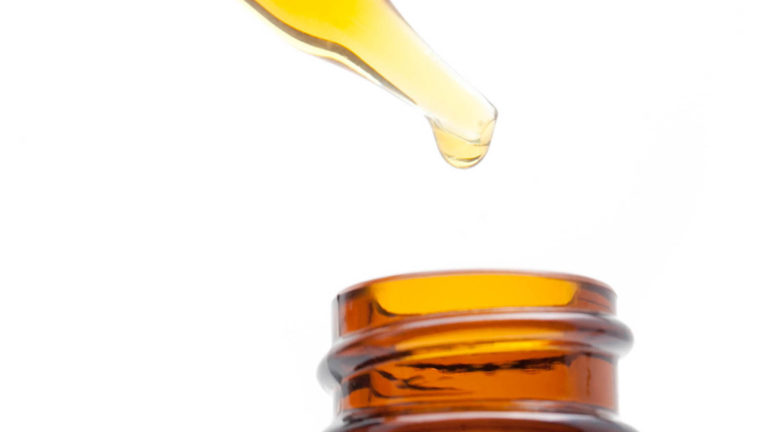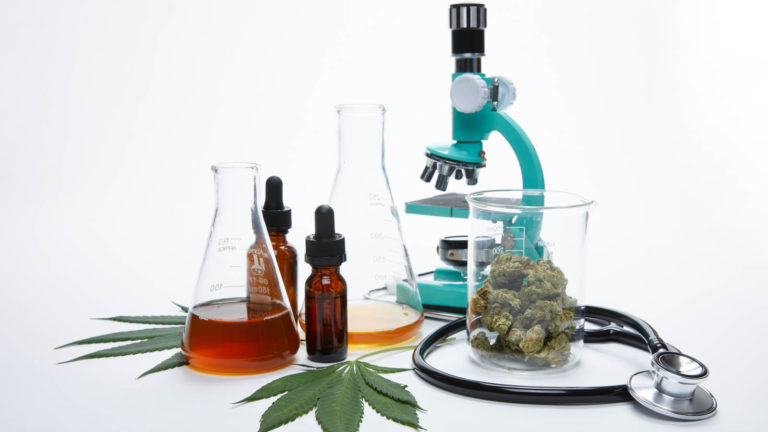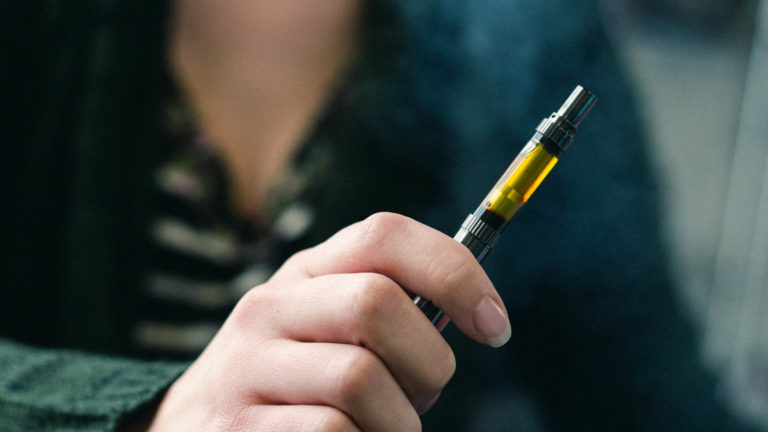Anxiety affects everyone differently. For some, feelings of anxiety occur sporadically in response to stress or trauma, dissipating once the trigger has been resolved. For others, anxiety can become so pervasive it presents itself as a disorder, affecting work, education, relationships, and overall health. It's no surprise that the potential use of CBD oil for anxiety has piqued the interest of so many people.
Anxiety disorders are the most common type of mental health disorder. About 284 million people globally had an anxiety disorder in 2017, according to estimates in “Mental Health,” published online at OurWorldInData.org. Individuals living with anxiety often experience a disproportionate emotional or physical reaction to neutral or everyday events, and as a result, experience a diminished well-being.
Medications that are sometimes used to help manage these reactions include selective serotonin reuptake inhibitors (SSRIs), tricyclic antidepressant drugs, and tranquilizers. These treatments do not work for everyone, however, and in some cases, they may include side effects such as drowsiness, reduced libido, insomnia, nausea, or even suicidal thoughts.
 Photo by: Gina Coleman/Weedmaps
Photo by: Gina Coleman/WeedmapsImage lightbox

Emerging research suggests that cannabidiol (CBD), a non-intoxicating cannabinoid found in the cannabis plant, has anxiety-reducing properties that could offer benefits for those seeking an alternative method of managing anxiety.
Research overview
Most of the understanding we have about the anti-anxiety effects of CBD has come from more than 30 preclinical animal studies. Randomized controlled clinical trials on human participants are necessary for a more definitive understanding of how CBD works and the most effective doses for treating anxiety.
The existing preclinical research, however, has provided a range of insights into how CBD might impact the brain to help alleviate anxiety. CBD appears to facilitate signaling in serotonin receptors. Serotonin is a neurotransmitter that helps regulate mood and reduce anxiety and depression.
CBD also enhances anandamide signaling. A critical component of the endocannabinoid system, anandamide is a powerful neurotransmitter, known as the bliss molecule, which influences feelings of well-being and uplifting moods. Anandamide is also associated with the regulation of pain, which explains why CBD is also anecdotally reported to ease chronic pain.
CBD may also act on. regions of the brain thought to play a critical role in mediating fear and anxiety. Individuals with anxiety disorders tend to have overactivity in these areas, which CBD may help reduce.
The studies
A 2015 review published in Neurotherapeutics examined animal studies as well as human experimental, clinical, and epidemiological studies of CBD as a treatment for anxiety. The study's authors concluded that while there is evidence from the animal studies to support CBD as a treatment for anxiety disorders, human studies are limited, and none of the studies look at long-term use or dosing. They also noted that in human studies, CBD seemed to exhibit a wide range of effects such as decreasing fear, reducing panic, reducing compulsive behavior, helping to extinguish persistent fear memories, and decreasing arousal of the autonomic nervous system. CBD appeared most effective at reducing anxiety when administered at the time of the fear- or anxiety-producing event in oral doses ranging from 300 to 600 mg.
A 2011 study published in Neuropsychopharmacology tested the effects of CBD on human participants with generalized social anxiety disorder (SAD). Twenty-four participants took part in a double-blind trial which involved a simulated public speaking test. Each participant received either 600 milligrams of CBD or a placebo.
 Photo by: Gina Coleman/Weedmaps
Photo by: Gina Coleman/WeedmapsImage lightbox

Those who received CBD experienced a significant reduction in anxiety, cognitive impairment, and discomfort in delivering their speech, compared with the placebo group. The study suggests that CBD represents a promising quick-acting treatment for patients with SAD, although the authors did point out that the small sample size limits the general application of the findings.
Finally, a 2019 study published in The Permanente Journal discussed the findings of a case study investigating CBD as a treatment for sleep and anxiety disorders. The case study included 47 individuals at a mental health clinic presenting with anxiety. The majority of the participants received 25 milligrams of CBD in capsule form each day, although some participants with more severe anxiety were provided with 50 or 75 milligram doses of CBD.
The study found that 79% of patients experienced an improvement in their anxiety after one month of treatment. At the second monthly check-up, 78% reported an improvement in anxiety compared with the prior monthly assessment. However, some patients also experienced a worsening of symptoms. After the first month, 15% found their anxiety became worse, with this increasing to 19% following the second month. The majority of those who took CBD tolerated it well, with few side effects noted.
Patient perspectives
Stephanie Dolgoff is a journalist who wrote about her experience using CBD for anxiety in Good Housekeeping in 2019. Dolgoff had been a bit anxious all her life but the birth of twins left her overwhelmed with worry about their well being. She was already using exercise, meditation, an antidepressant, and therapy but sometimes daily stressors would still leave her mind reeling. When an anti-anxiety drug was added to the mix, with unpleasant side effects, Dolgoff decided to try CBD.
After doing some research and talking with a doctor, she began with 10mg of a tincture taken every day for a week but felt no change. After upping the dose to 15mg/day, via tincture and gummi, she still felt very little. Then, in a particularly stressful moment, a friend handed her a CBD vape pen.
 Photo by: Gina Coleman/Weedmaps
Photo by: Gina Coleman/WeedmapsImage lightbox

“Within less than a minute, I felt a de-escalation, and after a few minutes, I felt noticeably, appreciably calmer,” Dolgoff reported. “I've been vaping between one and three hits each morning, which helps me feel subtly but noticeably calmer as I organize and set out for my day, and I also keep my vape pen on hand for emergencies.”
Hilary Morse, who took prescription anti-anxiety medication for two years, switched to CBD tincture after realizing she was becoming addicted and required increasingly larger doses. She told her story in Shape magazine in 2019.
Morse tried all the other wellness products she could find with no relief. CBD seemed “too good to be true, like modern-day snake oil,” according to Morse. But her anxiety was worse than ever so she gave CBD a shot.
“I started taking a tincture every day, without expecting any results. At about the seven- to 10-day mark, I realized that it was helping.”
The effect was more subtle than when taking prescription medication, according to Morse, she just felt more calm and relaxed.
“All the tension that I'd had in my neck and shoulders felt like it had melted away. People were actually commenting on how relaxed I seemed.”
What the experts say
Dr. James Matthew Andry, a Clinical Assistant Professor at the Indiana University School of Medicine and an educator and lecturer on cannabinoid science, acknowledges that further scholarly studies are needed for a more comprehensive understanding of CBD in relation to anxiety. He does point out, however, that there is a strong basis to believe that CBD offers potential as an anti-anxiety treatment due to studies which have shown its effects on neurotransmitters such as serotonin and anandamide.
“Anandamide is a fatty acid. It's also a hormone and a neurotransmitter that is one of our natural anxiety reducers in the nervous system. It also induces sleep and decreases pain,” explained Andry. “CBD blocks the enzyme that degrades anandamide in our bodies, an enzyme called fatty acid amide hydrolase, or FAAH.”
For Andry, one of the most exciting qualities of CBD is that all studies conducted thus far indicate that it is very safe, and could represent a real alternative to existing pharmaceutical treatments.
 Photo by: Gina Coleman/Weedmaps
Photo by: Gina Coleman/WeedmapsImage lightbox

Dr. Adie Rae, a neuroscientist at Legacy Research Institute specializing in cannabis pharmacology, points out that bioavailability, or the amount of a drug that actually ends up in circulation in the body, should be a key factor when choosing a CBD product.
“If someone is using CBD oil for anxiety (or any other reason,) bioavailability is an important decision-making factor in the kind of product to buy,” she said. “CBD patches or well-formulated topicals are likely to get more CBD up to your brain than swallowing a tincture, unless you're swallowing large doses (30+ mg) on a daily basis.”
Rae acknowledges that it may be difficult for consumers to find that information. “Because these products are so expensive, a lot of folks would benefit from carefully choosing a product with the highest bioavailability. This is tricky, because in this unregulated space, few brands have tested that in their products.”
Bottom line
There is a substantial body of animal research and more recent studies on human participants that suggest CBD holds significant promise as a new treatment for managing anxiety.
However, further studies, particularly randomized controlled trials, are essential to explore the long-term effects of regular CBD use on human populations and develop guidelines for dosing.
Major contributions from Dr. Adie Rae.

